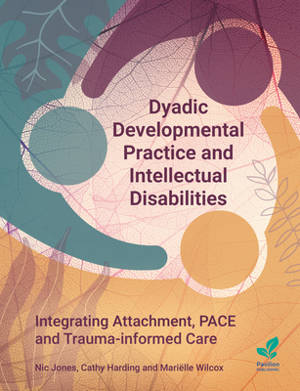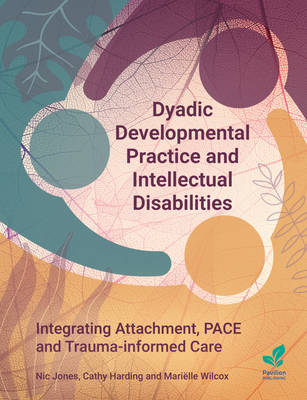
- Afhalen na 1 uur in een winkel met voorraad
- Gratis thuislevering in België vanaf € 30
- Ruim aanbod met 7 miljoen producten
- Afhalen na 1 uur in een winkel met voorraad
- Gratis thuislevering in België vanaf € 30
- Ruim aanbod met 7 miljoen producten
Dyadic Developmental Practice and Intellectual Disability
Integrating Attachment, PACE and Trauma-informed Care
Nic Jones, Cathy Harding, Mariëlle WilcoxOmschrijving
Dyadic Developmental Practice has evolved from a model of direct therapy (DDP) originally developed for children who are fostered or adopted. This therapeutic approach is tailored to building relationships and to help address past trauma experiences.
This book is first to offer DDP approaches and adaptations when supporting children and adults with an intellectual disability (ID).
The authors outline the key concepts and frameworks used in DDP, illustrated through a range of case studies and practice examples. The book considers all elements of DDP including psychotherapy, parenting practices and PACE (that stands for being Playful, Accepting, Curious and Empathetic about a person's experience). The book acknowledges that the PBS framework is prevalent within services for people with ID and offers ways to draw on the DDP framework to enhance this work.
Dyadic Developmental Practice and Intellectual Disability is written in an accessible style for health workers and social care staff. The book includes key resources developed for future training and supervision.
The foreword has been written by Kim Golding, an active developer of DDP in the UK who was trained and mentored by Dan Hughes, the founder of DDP.
Specificaties
Betrokkenen
- Auteur(s):
- Uitgeverij:
Inhoud
- Aantal bladzijden:
- 324
- Taal:
- Engels
Eigenschappen
- Productcode (EAN):
- 9781803884110
- Verschijningsdatum:
- 30/06/2025
- Uitvoering:
- Paperback
- Formaat:
- Trade paperback (VS)
- Afmetingen:
- 171 mm x 246 mm
- Gewicht:
- 582 g

Alleen bij Standaard Boekhandel
Beoordelingen
We publiceren alleen reviews die voldoen aan de voorwaarden voor reviews. Bekijk onze voorwaarden voor reviews.








